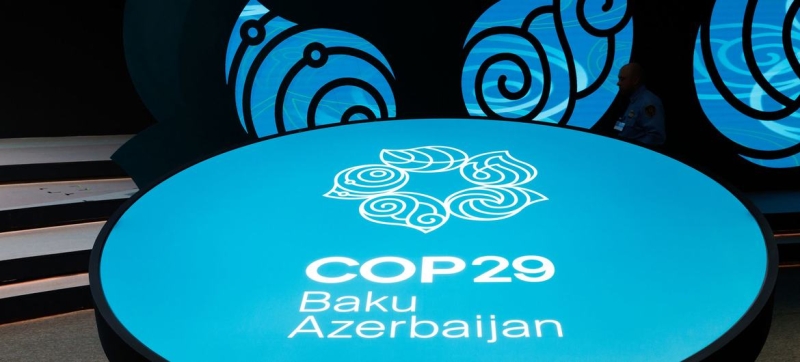
COP29 delegates agree standards for single international carbon market. INTERVIEW | Carbon market could bring hundreds of billions of dollars to developing countries Climate and Environment
In the first days of the UN Climate Conference (COP29), delegates agreed on standards for a single international carbon market, an important step towards finalizing the negotiations on Article 6 of the Paris Agreement. UN News Service correspondent Nazrin Babayeva asked James Grabert, Director of the Climate Change Mitigation Division of the UN Framework Convention on Climate Change (UNFCCC), about the decision.
UN News Service: Could you explain the main objectives of Article 6 and why it is so important for the success of the Paris Agreement?
DG: Article 6 of the Paris Agreement talks about how countries can cooperate, including through a market and trading system whereby if a country reduces emissions properly and that result is certified, it gets a “credit” and can trade it. This can help countries reach their targets by buying allowances. This creates a carbon market.
Two-thirds of countries said they intend to use Article 6 as a tool to reach their targets, which are made more achievable by the mechanism. Working with markets also allows countries implementing such projects to engage with non-governmental organizations and the private sector, identifying and stimulating real opportunities in the economy.
UN News Service: How the UNFCCC ensures transparency in the emissions trading mechanism and ensures benefits for all countries, especially those most vulnerable to the impacts of climate change?
DG: Integrity and fairness are key. From the outset, the parties made it clear that there would be a collective approach. It is a market mechanism, but it is built on high standards of fairness so that we can be sure that we know everything that is going on and that the interests of all participants are taken into account.
Integrity was one of the key principles for the development of the rules and procedures by the supervisory authority. This ensures that not only the environment is protected, but also human rights. All these aspects are taken into account when developing projects and creating the credit system.
In addition, the new Article 6.4 mechanism sets out for the first time a mandatory process using the sustainability instrument that describes all the safeguards. This is checked to ensure that all conditions are met.
In addition, we now have appeals and complaints procedures, allowing all stakeholders to raise their concerns. Thus, mandatory integrity requirements and a complaints procedure allow us to ensure transparency and ensure benefits not only for investors but also for sustainable development.
UN News Service: How do you assess the recent consensus on Article 6 reached here in Baku? Can COP29 be considered a historic milestone?
DG: We have been moving in this direction since the Paris Agreement was adopted. So yes, this is a historic moment: everything is in place to implement Article 6.4 as a result of this conference. Already on the first day, some standards were agreed to allow for a consistent assessment of actions and to ensure their integrity. There is still some work to be done in the next week and a half, especially on Article 6.4, and the parties will be able to constantly return to the discussion and make recommendations. We have everything we need to implement this mechanism, and hopefully next year projects will start to emerge and loans will be issued by the end of the year.
This is important because it gives countries a tool to achieve their goals faster, cheaper and more inclusively, involving the whole of society. The lending mechanism also needs to evolve, so while we are launching it now, it will be continually improved in the future.
UN News Service: What does Article 6.4 mean for future climate policy and action?
DG: The integrity standards we have set show that we are not looking for easy solutions. We hope that efforts will be focused on real emission reductions. A portion of the proceeds will go to finance adaptation, and with all the controls in place, this is a signal that we must put people first in the fight against climate change, in a sustainable and inclusive manner. We need to address climate change, but we cannot forget about the needs of all people and that every voice is heard. This benchmark is important because it also creates another channel for climate finance.
If the carbon market functions correctly, it could generate hundreds of billions of dollars for developing countries.
